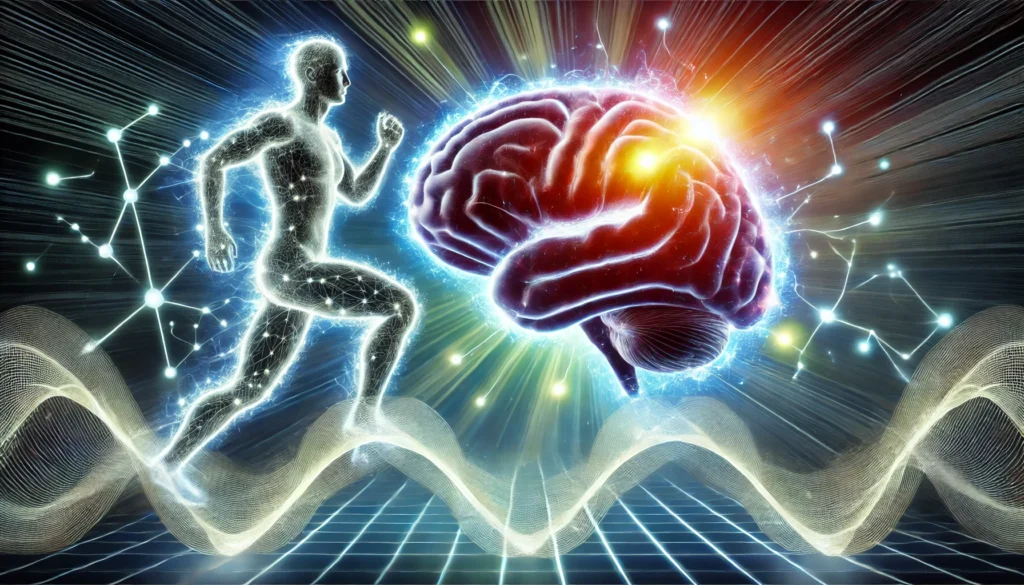Understanding Memory Functionality
Memory is a complex and multifaceted cognitive function essential for daily living. It encompasses processes like encoding, storing, and retrieving information, which are vital for learning and decision-making. Memory can be categorized into short-term, long-term, and working memory, each serving distinct roles in our cognitive architecture.
Short-term memory acts as a temporary holding area for information, allowing us to keep track of tasks and conversations. It is limited in capacity and duration, typically holding information for just a few seconds. Long-term memory, on the other hand, stores information indefinitely and is crucial for recalling past experiences, knowledge, and skills.
Working memory is an active form of memory that enables us to manipulate and process information in real-time. It is involved in problem-solving, reasoning, and comprehension, making it a critical component of our cognitive toolkit. Understanding these different types of memory helps us appreciate how exercise can enhance each aspect of our cognitive functioning.
You may also like: Top Herbs to Enhance Your Focus
How Exercise Influences Memory
Exercise influences memory through several biological mechanisms that promote brain health. Physical activity increases blood flow to the brain, delivering oxygen and nutrients essential for optimal cognitive function. This enhanced circulation also facilitates the release of neurotrophic factors, which are vital for the growth and survival of neurons.
One of the key neurotrophic factors released during exercise is brain-derived neurotrophic factor (BDNF), which plays a significant role in synaptic plasticity. Synaptic plasticity is the ability of synapses to strengthen or weaken over time, and it is crucial for learning and memory. By boosting BDNF levels, exercise enhances synaptic plasticity, making it easier for the brain to form and retain memories.
Research indicates that aerobic exercises, such as running and swimming, are particularly effective in bolstering memory functionality. These activities have been shown to increase the volume of the hippocampus, a critical brain region for memory consolidation. This structural change in the brain underscores the profound impact of regular physical activity on cognitive health.
Neurochemical Changes Induced by Exercise
Exercise induces various neurochemical changes that positively affect cognitive function. During physical activity, the brain releases neurotransmitters like dopamine and serotonin, which are associated with mood regulation and cognitive processes. These neurotransmitters enhance focus, attention, and motivation, creating an optimal environment for learning and memory retention.
Moreover, exercise reduces levels of the stress hormone cortisol, which can impair cognitive function and memory when elevated. By mitigating stress, exercise helps protect the brain from the detrimental effects of chronic stress, contributing to better memory performance. These neurochemical shifts highlight the multifaceted ways in which exercise supports cognitive health.
Historical Context and Current Trends
A Brief History of Exercise and Cognitive Science
The connection between physical activity and cognitive function has been acknowledged since ancient times. Greek philosophers, such as Plato and Aristotle, extolled the virtues of physical fitness for mental acuity. They believed that a sound body contributed to a sound mind, laying the groundwork for future exploration of this relationship.
During the Renaissance, scholars like Leonardo da Vinci emphasized the importance of physical activity for maintaining mental sharpness. However, it wasn’t until the late 20th century that scientific research began to empirically substantiate these claims. Studies emerged linking regular exercise to improved cognitive performance and reduced risk of neurodegenerative diseases.
In the modern era, the integration of exercise and cognitive science has become a prominent area of research. This interest is driven by the growing understanding of the brain’s plasticity and the potential for lifestyle interventions to influence cognitive health. As a result, the role of exercise in enhancing memory and overall cognitive function continues to gain recognition.
Current Trends in Exercise and Cognitive Health
In recent years, there has been a surge of interest in the cognitive benefits of exercise, driven by an aging population and the increasing prevalence of neurodegenerative diseases. This has led to a burgeoning field of research exploring various exercise modalities and their impact on cognitive health, with a particular focus on memory retention and prevention of memory loss.
The rise of personalized fitness programs tailored to cognitive health goals reflects this trend. Fitness professionals now incorporate cognitive assessments into their training regimens, allowing individuals to track their progress and adapt their routines accordingly. This personalized approach ensures that exercise not only improves physical fitness but also optimizes mental well-being.
Additionally, the integration of technology into fitness has transformed how individuals engage with exercise for cognitive health. Wearable devices and fitness apps provide real-time feedback on exercise performance and cognitive outcomes, empowering users to make informed decisions about their routines. This technological advancement has made it easier for people to incorporate exercise into their lives with a focus on cognitive enhancement.

The Influence of Social and Cultural Factors
Social and cultural factors also play a role in shaping current trends in exercise and cognitive health. The growing awareness of mental health issues has led to a broader acceptance of exercise as a tool for managing stress and anxiety. Communities are increasingly recognizing the importance of physical activity for mental well-being, leading to the proliferation of group exercise classes and community fitness initiatives.
Furthermore, the cultural shift towards holistic health has encouraged individuals to seek balance between physical and mental wellness. This trend is reflected in the popularity of mind-body exercises like yoga and tai chi, which emphasize the interconnectedness of the body and mind. By embracing these practices, individuals can achieve a more comprehensive approach to cognitive enhancement.
Exercise Modalities and Their Impact on Memory
Aerobic Exercise
Aerobic exercise, characterized by sustained, rhythmic activity, has been consistently linked to improved memory performance. Engaging in regular aerobic exercise increases cardiovascular fitness, which in turn enhances blood flow to the brain. This improved circulation supports the delivery of oxygen and nutrients critical for cognitive function.
Studies have shown that aerobic exercise can enhance both short-term and long-term memory, as well as delay age-related memory decline. Activities such as running, cycling, and swimming have been associated with increased hippocampal volume, a brain region essential for memory consolidation. These findings underscore the importance of incorporating aerobic exercise into a routine for optimal cognitive health.
Moreover, aerobic exercise has been found to boost mood and reduce symptoms of anxiety and depression, creating a more favorable environment for learning and memory. By improving mental well-being, aerobic activities contribute to a holistic approach to cognitive enhancement, making them a valuable component of any exercise regimen.
Resistance Training
Resistance training, while traditionally associated with muscle strengthening, also offers cognitive benefits. This form of exercise involves working against a force to build strength and endurance, and it has been shown to improve working memory and executive function. These cognitive improvements may be attributed to the release of growth factors that support brain health.
Research suggests that resistance exercises can enhance brain plasticity by increasing the production of BDNF and other neurotrophic factors. This supports the formation of new neural connections, facilitating learning and memory. Additionally, resistance training may help regulate hormones like insulin and cortisol, which can impact cognitive function.
Incorporating resistance training into an exercise routine can provide a balanced approach to physical and cognitive health. By complementing aerobic activities with strength-building exercises, individuals can maximize the cognitive benefits of their fitness regimen and support overall well-being.
Mind-Body Exercises
Mind-body exercises, such as yoga and tai chi, combine physical movement with mindfulness practices, offering a unique approach to cognitive enhancement. These exercises promote relaxation and stress reduction, which are crucial for maintaining optimal cognitive function. By reducing stress, mind-body practices can improve memory and cognitive flexibility.
Yoga and tai chi have been found to enhance attention, concentration, and executive function, likely due to their emphasis on breath control and mental focus. These exercises also encourage the development of interoceptive awareness, or the ability to perceive internal bodily sensations, which is linked to improved self-regulation and emotional resilience.
The holistic nature of mind-body exercises makes them an excellent addition to a cognitive health-focused exercise routine. By fostering a sense of calm and balance, these practices contribute to overall mental well-being, supporting memory and cognitive performance in the long term.
Practical Advice for Enhancing Memory Through Exercise
Creating an Exercise Routine
To harness the memory-boosting benefits of exercise, it’s essential to create a balanced routine that incorporates various exercise modalities. Aim for at least 150 minutes of moderate-intensity aerobic exercise per week, supplemented with resistance training and mind-body practices. This combination ensures a comprehensive approach to cognitive enhancement.
Start by setting realistic and achievable goals that align with your lifestyle and preferences. Consider incorporating activities you enjoy, such as dancing, hiking, or team sports, to maintain motivation and consistency. Establishing a routine that you look forward to can make it easier to stick with your exercise plan and reap the cognitive benefits.
Monitor your progress by keeping a journal or using fitness apps to track your activities and cognitive improvements. Reflecting on your achievements can provide valuable insights into what works best for you and help you make informed adjustments to your routine. By staying committed to your goals, you can optimize the cognitive benefits of exercise.

Tailoring Exercise to Individual Needs
Exercise regimens should be tailored to individual preferences and abilities, ensuring sustainability and enjoyment. Consider consulting a health and wellness coach to develop a personalized plan that aligns with your cognitive health goals. A professional can help you identify the most effective exercises for your needs and provide guidance on proper technique and progression.
Listen to your body and adjust your routine based on how you feel. If certain exercises are causing discomfort or fatigue, explore alternative activities that offer similar benefits without strain. Flexibility in your approach allows you to maintain a positive relationship with exercise and avoid burnout.
Incorporate rest and recovery periods into your routine to support muscle repair and prevent overtraining. Adequate rest is essential for cognitive recovery and performance, ensuring that you remain energized and focused. By prioritizing self-care, you can sustain long-term engagement in exercise and enjoy its cognitive benefits.
Integrating Cognitive Challenges into Exercise
To further enhance memory and cognitive function, consider integrating cognitive challenges into your exercise routine. Activities that require mental effort, such as learning a new dance routine or navigating a complex hiking trail, can stimulate the brain and promote neuroplasticity.
Engage in activities that combine physical movement with cognitive tasks, such as playing sports that require strategic thinking or participating in group fitness classes that incorporate memory-based exercises. These activities can enhance working memory and executive function, providing a comprehensive cognitive workout.
By challenging both the body and mind, you can maximize the cognitive benefits of exercise and support overall brain health. This integrated approach encourages continuous learning and adaptation, fostering resilience and mental agility.
Future Implications and Research Directions
The Role of Technology in Exercise and Cognitive Health
Advancements in technology are poised to revolutionize the intersection of exercise and cognitive health. Wearable devices and fitness apps can provide personalized insights into exercise patterns and their cognitive outcomes, empowering individuals to optimize their routines for memory enhancement. These tools offer real-time feedback and data analysis, facilitating informed decision-making.
Virtual reality (VR) and augmented reality (AR) are emerging technologies with the potential to transform exercise experiences. VR-based fitness programs can create immersive environments that engage users both physically and cognitively, offering novel ways to enhance memory and cognitive function. By integrating technology into exercise, individuals can access innovative solutions for cognitive health.
Furthermore, online platforms and social media offer opportunities for community engagement and knowledge sharing. By connecting with others who share similar goals, individuals can access support, motivation, and resources to enhance their exercise routines. The digital landscape provides a wealth of information and inspiration for those seeking to improve their cognitive health through exercise.
Emerging Research Areas
Emerging research areas include the exploration of exercise-induced epigenetic changes and their impact on cognitive function. Understanding how exercise modulates gene expression related to memory could unlock new avenues for cognitive enhancement and neuroprotection. Epigenetics offers insights into the molecular mechanisms underlying exercise’s effects on the brain.
Researchers are also investigating the role of exercise in promoting neurogenesis, the process of generating new neurons in the brain. This area of study holds promise for developing interventions that support cognitive health and combat age-related cognitive decline. By uncovering the biological pathways influenced by exercise, scientists can develop targeted strategies for memory enhancement.
Another exciting area of research is the impact of exercise on the gut-brain axis. The gut microbiome plays a crucial role in regulating brain function, and exercise has been shown to influence the composition of gut bacteria. Exploring this connection may reveal new insights into how physical activity supports cognitive health through microbiome modulation.
Long-Term Implications for Public Health
The growing body of evidence supporting the cognitive benefits of exercise has significant implications for public health initiatives. By promoting physical activity as a preventive measure for cognitive decline, policymakers can encourage healthy lifestyle choices that benefit both physical and mental well-being.
Incorporating exercise programs into educational settings and workplaces can foster a culture of health and wellness, reducing the burden of neurodegenerative diseases on healthcare systems. Public health campaigns that emphasize the importance of regular exercise for cognitive health can inspire individuals of all ages to prioritize physical activity.
By understanding the long-term benefits of exercise for memory and cognitive function, society can make informed decisions to promote overall well-being and quality of life. These efforts can lead to healthier, more resilient communities equipped to face the challenges of an aging population.

Conclusion
Exercise stands as a powerful ally in the quest to boost memory functionality. By understanding the scientific underpinnings and practical applications of exercise, individuals can make informed decisions to enhance their cognitive health. Whether you are a health and wellness coach, a science journalist, or a biohacker, recognizing the profound impact of physical activity on memory is crucial for optimizing mental performance and overall well-being.
Incorporate a variety of exercises into your routine to reap the full spectrum of cognitive benefits. Stay informed about the latest research and trends to continually refine your approach to enhancing memory through exercise. The journey to a sharper mind begins with a single step—literally.
By embracing the power of exercise, you can unlock your cognitive potential and enjoy a healthier, more vibrant life. Remember that consistency is key, and the choices you make today can shape your cognitive health for years to come. Take charge of your brain health by integrating exercise into your daily routine and experience the transformative effects on your memory and overall well-being.
Further Reading:
Exercise and deep sleep give the brain a 24-hour boost
Exercise can boost your memory and thinking skills
The Influence of Exercise on Cognitive Abilities
Important Note: The information contained in this article is for general informational purposes only, and should not be construed as health or medical advice, nor is it intended to diagnose, prevent, treat, or cure any disease or health condition. Before embarking on any diet, fitness regimen, or program of nutritional supplementation, it is advisable to consult your healthcare professional in order to determine its safety and probable efficacy in terms of your individual state of health.
Regarding Nutritional Supplements Or Other Non-Prescription Health Products: If any nutritional supplements or other non-prescription health products are mentioned in the foregoing article, any claims or statements made about them have not been evaluated by the U.S. Food and Drug Administration, and such nutritional supplements or other health products are not intended to diagnose, treat, cure, or prevent any disease.


